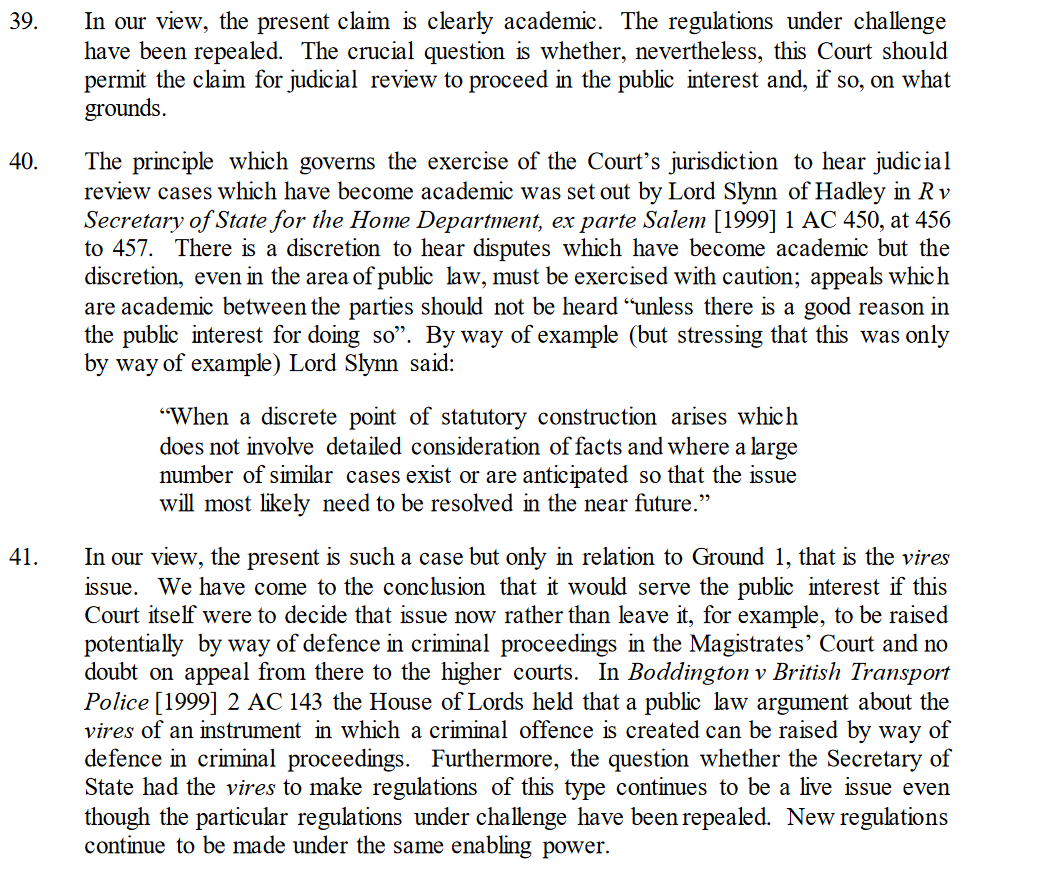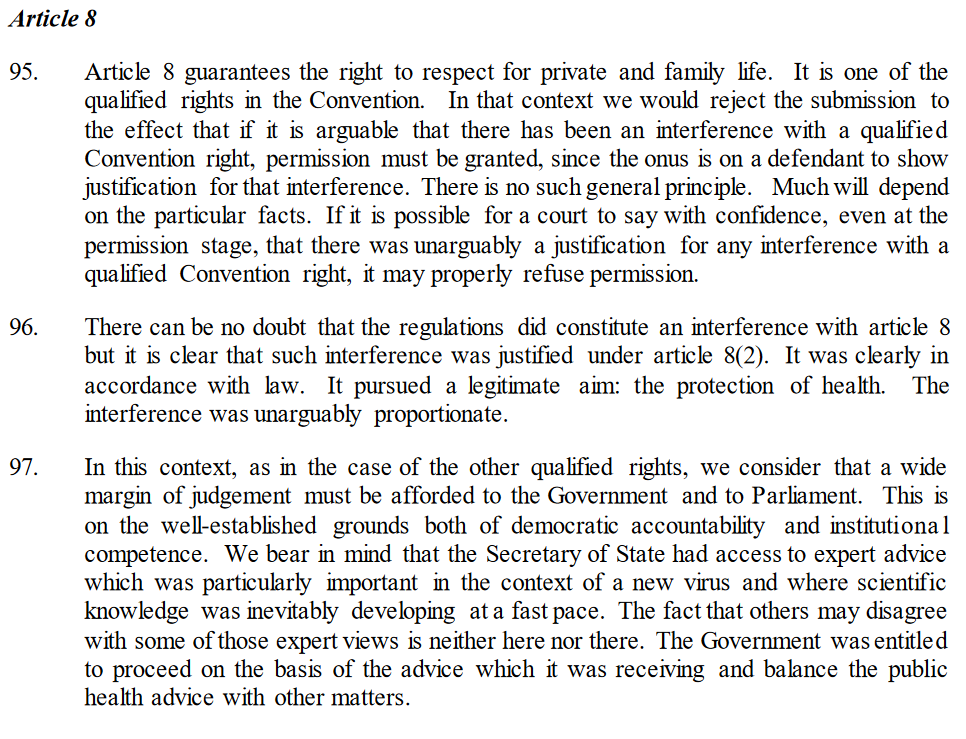Well now, the Court of Appeal has granted permission for Simon Dolan to argue that the coronavirus lockdown regulations are unlawful.
A stunning victory?
I'm afraid not, a defeat.
https://www.judiciary.uk/wp-content/uploads/2020/12/Dolan-v-SSHSC-judgment-011220-.pdf
A stunning victory?
I'm afraid not, a defeat.
https://www.judiciary.uk/wp-content/uploads/2020/12/Dolan-v-SSHSC-judgment-011220-.pdf
Mr Dolan wanted to argue a number of points, but the Court of Appeal agreed with the original judge that most of them were of academic interest only, in that the original regulations have long since been repealed.
However, the Court did give him permission to argue his main point, that the Health Protection Act did not give ministers power to make the regulations at all. "The vires point."
But having given him permission to argue, the Court decided the point anyway: the Health Protection Act does give the Minister power to make these regulations. That's good news for the government, bad news for anyone being prosecuted for breaching the regulations.
It dealt shortly with a point that Lord Sumption has been banging on about recently: that the regulations should have been made under the Civil Contingencies Act, which (amongst other things) provides for greater Parliamnetary scrutiny.
The Court went on (although strictly speaking this was not necessary for its decision) to examine and reject each of Mr Dolan's Human Rights Act points. First Article 5 (deprivation of liberty). Not so, said the Court: the regs didn't remove enough liberty to make that arguable
Secondly, Article 8 (right to a private and family life). That's a qualified right, and the interference was justified, said the Court, by the need to protect public health.
Thirdly Article 11, the right to freedom of assembly etc. No again, said the judges, mainly because the regulations, whilst they might have prevented many assemblies, were subject to the "reasonable excuse" exception.
The Court didn't want to say anything about a possible breach of Article 9 (freedom of religion etc) as another case is pending on that issue, so they confined themselves to simply saying that leave was rightly refused by the original judge.
There's quite a bit more, but that's the gist of the judgment I hope. But then, as sometimes happens with these cases, we come to the ticking off at the end.

 Read on Twitter
Read on Twitter







